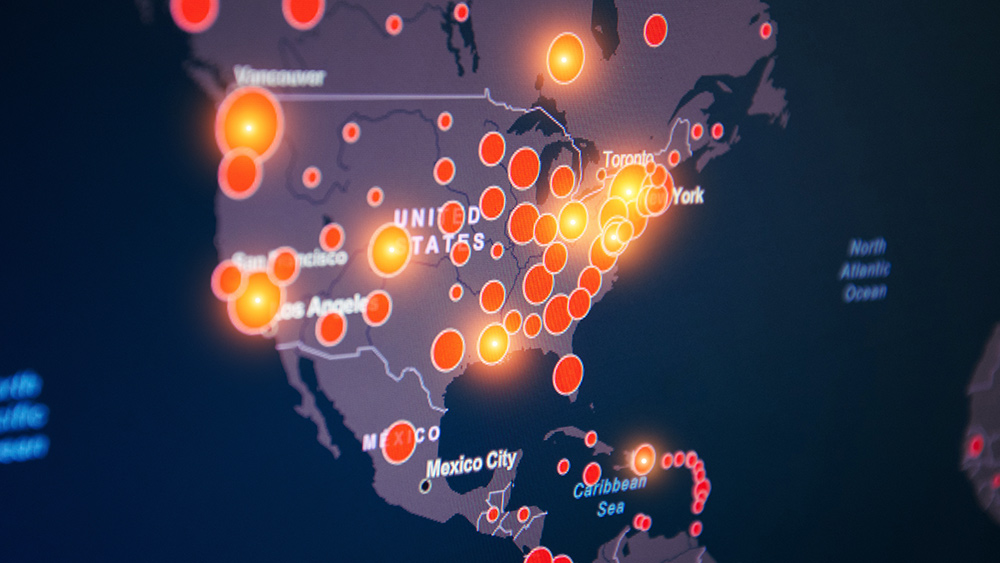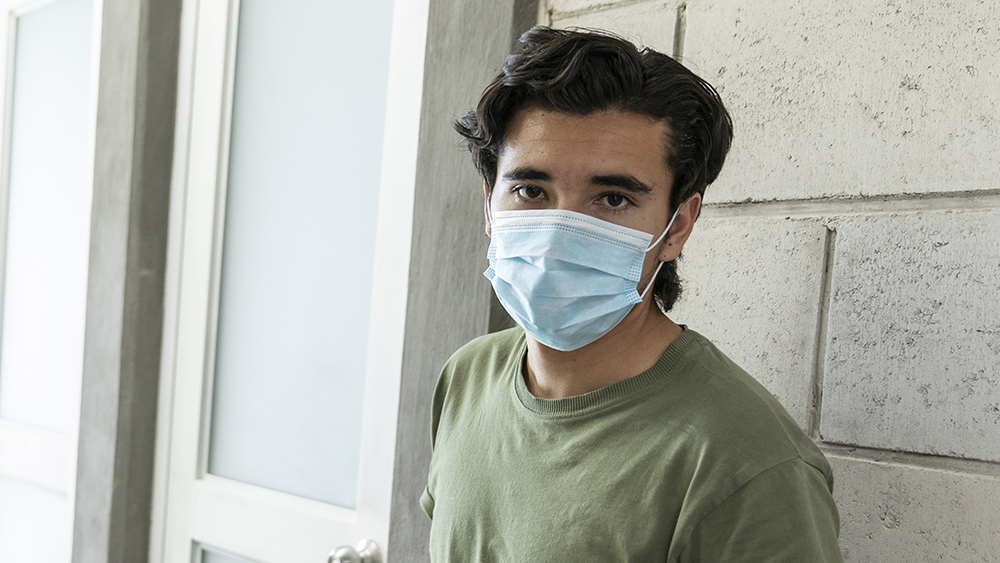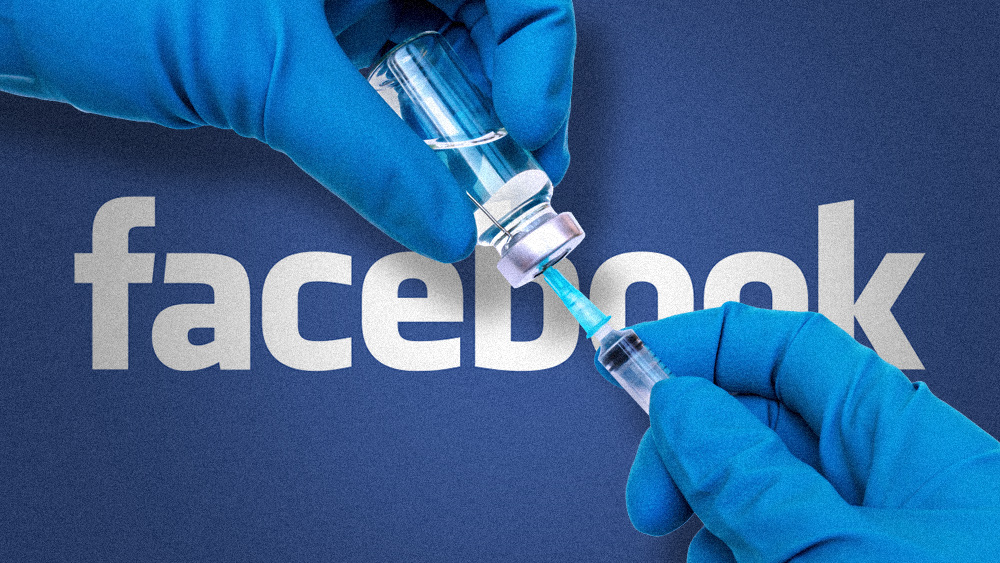New coronavirus cases in America jump by 50,000 in a single day for the first time
07/02/2020 / By Franz Walker

The United States’ daily count of new coronavirus cases surpassed 50,000 for the first time ever on Wednesday. The surge was driven by record increases in some of the most populous states, such as California and Texas.
Data from the COVID Tracking Project shows that a further 52,982 people tested positive for the coronavirus over the past 24 hours. This tops the previous record increase from June 26 by over 8,600. Meanwhile, the U.S.’s daily case rate also rose by 105 percent throughout the month of June.
The increase in the number of new cases is fueling concerns about the speed at which the outbreak is spreading in U.S. hotspots.
States reporting increased number of new cases
Texas reported 8,076 cases Wednesday, bringing the state’s total to 168,062. This increase topped a record set the previous day by more than 1,100 with 57 deaths and represented the state’s biggest single-day increase since May.
Hospitals in Texas, which was one of the first states to reopen, have been overwhelmed by the increase in cases, leading to a shortage of intensive-care beds. In Houston, the fourth most populous city in America, hospital systems are now rushing to convert regular hospital beds into surge beds – regular hospital beds converted to handle intensive-care patients. Despite this effort, estimates still show that the number of patients needing intensive-care will reach unsustainable levels in less than a week.
Florida saw a jump of 6,563 cases Wednesday, bringing its caseload up to 138,997. The state first hit 100,000 cases last June 24. Since then, the numbers have risen exponentially, with the state recording another 50,000 in a little over a week.
The increase in cases has led some counties – specifically Miami-Dade and Broward – to issue orders requiring the wearing of masks in public. This is despite Gov. Ron DeSantis’s earlier dismissal of such measures.
California’s state’s health department reported 9,740 cases Wednesday, taking its total close to 233,000. The state, which saw some of the earliest cases of COVID-19 in America, largely escaped the initial wave of the disease that hit states such as New York. The trend has reversed in recent weeks, however, after the state began loosening restrictions.
In an effort to curb a further spread of the disease, Gov. Gavin Newsom ordered businesses with indoor operations in some of the states most populous and hardest-hit cities to close. In addition, Newsom said that parking facilities at beaches in southern California and the San Francisco bay area would be closed for the Fourth of July holiday weekend.
Arizona also saw record numbers Wednesday, with 4,878 people testing positive for the coronavirus, according to state health officials. Vice-president Mike Pence visited the state capital Phoenix on Wednesday, where he discussed the situation with state and local officials.
The state has since also ordered bars statewide to close, effectively reversing their reopening plans.
Increases aren’t due to more testing
As states have reopened, most have also increased the amount of testing being done to detect the coronavirus. As such, some have attributed the rising number of cases to the increased testing.
In early June, a number of local health officials said that Texas’s rising numbers could partly be due efforts to test all nursing home residents and staffers in the state.
Not all leaders agree. In Louisiana, Gov. John Bel Edwards has stated that the rise in cases is “more than can be fairly attributed to the growth in testing.” He pointed to the accompanying rise in hospitalizations as an indicator of this.
In addition, the percentage of coronavirus tests that are coming back positive is now increasing in many of the states experiencing record surges. This is seen as another sign that rising infection rates are driving the surge, not an increase in testing.
“When you see percent positivity rising, that usually means that not every case is being captured by this system,” Dr. Amesh Adalja, an infectious disease expert at Johns Hopkins University, told Business Insider. “It really underscores the need for states to get robust case contact tracing teams in place because that’s the way you keep those chains of transmission from spilling into your hospital.”
Follow Pandemic.news to learn more about the Wuhan coronavirus.
Sources include:
Tagged Under: Arizona, California, coronavirus, covid-19, disease, epidemic, Florida, Flu, infections, outbreak, pandemic, superbugs, Texas, USA, virus



















